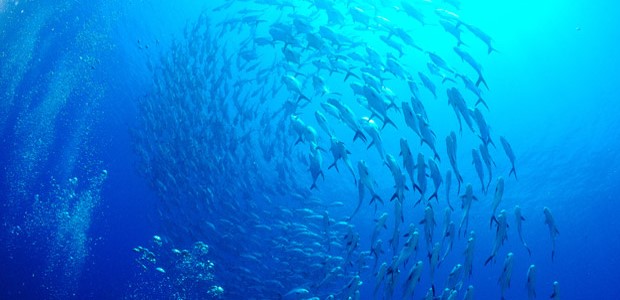
Environmental Penalty Benefits Florida Sanctuary
The investigation uncovered that the ship's oil record book was falsified since at least June 16, 2013, and that illegal oily waste discharges had occurred from two other vessels owned and operated by Carbofin.
The U.S. Department of Justice's Environment and Natural Resources Division and the U.S. Attorney's Office for the Middle District of Florida announced that Carbofin S.p.A., an Italian company that owned and operated the M/T Marigola, has been sentenced to pay al criminal penalty of $2.75 million for knowingly falsifying the ship's oil record book, a violation of the Act to Prevent Pollution from Ships. From the $2.75 million penalty, $600,000 will be paid to the National Marine Sanctuary Foundation for the benefit of Florida's only national marine sanctuary, the Florida Keys National Marine Sanctuary, to support the protection and preservation of natural resources located in and adjacent to the sanctuary.
DOJ's news release said during 2013 and 2014, "on numerous international voyages, senior members of the crew of the M/T Marigola directed the installation and use of a so-called 'magic hose' to dispose of sludge, waste oil, and oil-contaminated bilge water directly into the sea bypassing required pollution prevention equipment. On April 16, 2014, the vessel called upon the Port of Tampa to load anhydrous ammonia. Coast Guard inspectors boarded the vessel and were approached by two junior engineering crew members who showed the inspectors a video of the 'magic pipe' hooked up between piping leading to the bilge tank and the vessel's boiler blow down valve. The boiler blow down valve is a discharge point for the boiler to release hot water and steam. The inspectors had the valve removed and an oily black substance was discovered. Oil samples taken from the 'magic hose,' the bilge piping and the boiler blow down valve matched. The Chief Engineer, Carmelo Giano, and the Second Engineer, Alessandro Messore, had previously pleaded guilty and were sentenced for their role in ordering the use of the 'magic hose' to illegally discharge oily waste into the sea.
"We are extremely grateful to the U.S. Department of Justice in supporting the work of the National Marine Sanctuary Foundation on behalf of the nation's marine sanctuaries, including here at the Florida Keys National Marine Sanctuary," said Jason Patlis, president and CEO of the National Marine Sanctuary Foundation. "These funds will go to critical education, research, and restoration activities, including deployment of mooring buoys, coral reef restoration, and study and mitigation of invasive species impacts."
"Marine environmental protection is one of the Coast Guard's primary missions," said Captain Gregory Case of the Port at Sector St. Petersburg."The Coast Guard takes marine pollution seriously and works cohesively with our partner agencies to hold those who violate international law accountable for their actions. We anticipate the results of this case will deter future illegal oil discharges into the sea."
The investigation uncovered that the ship's oil record book was falsified since at least June 16, 2013, and that illegal oily waste discharges had occurred from two other vessels owned and operated by Carbofin. The case was investigated by U.S. Coast Guard Sector St. Petersburg and the U.S. Coast Guard Investigative Service. The case was prosecuted by Kenneth E. Nelson of the Environmental Crimes Section of the Department of Justice and Matthew Mueller of the U.S. Attorney's Office of the Middle District of Florida.